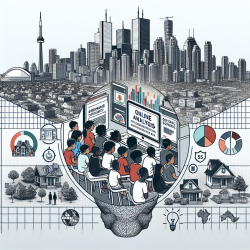Educators and practitioners constantly seek effective methods to enhance student learning and cognitive abilities. A groundbreaking study titled "Effects of Higher-Order Cognitive Strategy Training on Gist-Reasoning and Fact-Learning in Adolescents" sheds light on how targeted cognitive training can significantly improve both gist-reasoning and fact-learning among students.
The study, conducted with 54 eighth-grade students from an urban middle school, compared three groups: one trained in higher-order cognitive strategies (abstraction of meaning), another in rote memory strategies, and a control group. The findings revealed that students trained in higher-order cognitive strategies showed substantial improvement in both gist-reasoning and fact-learning abilities. Conversely, the rote memory group only improved in fact-learning, while the control group showed no significant change.
Key Takeaways for Practitioners
1. Implement Higher-Order Cognitive Strategies
Higher-order cognitive strategies, such as those focusing on the abstraction of meaning, can significantly enhance students' ability to understand and apply information in various contexts. Here are some practical ways to incorporate these strategies into your teaching:
- Encourage Summarization: Teach students to summarize texts by focusing on high-level ideas rather than just recalling facts. This helps them integrate new information with existing knowledge, fostering deeper understanding.
- Promote Inferencing: Guide students to make inferences and draw conclusions based on the information provided. This practice enhances their ability to think critically and abstract meaning.
- Use Concept Mapping: Implement concept mapping exercises that require students to organize and relate ideas, which can help them understand the hierarchical structure of information.
2. Focus on Gist-Reasoning
Gist-reasoning involves synthesizing information to derive general meanings and concepts. It is crucial for developing critical thinking skills. Here’s how you can promote gist-reasoning in your classroom:
- Ask Open-Ended Questions: Pose questions that require students to think beyond the text and relate it to broader concepts or real-life situations.
- Facilitate Group Discussions: Encourage students to discuss and debate topics, which helps them articulate and refine their understanding of the material.
- Incorporate Real-World Scenarios: Use case studies or real-world examples that require students to apply their knowledge and reasoning skills to solve problems.
3. Tailor Strategies to Diverse Learners
The study highlights that students from low socio-economic backgrounds, particularly those for whom English is a second language, can benefit significantly from higher-order cognitive training. Tailoring these strategies to meet the diverse needs of your students can enhance their learning outcomes.
Encouraging Further Research
While the study provides compelling evidence of the benefits of higher-order cognitive training, ongoing research is essential to refine these strategies and understand their long-term impact. Practitioners are encouraged to stay informed about the latest research and incorporate evidence-based practices into their teaching.
To read the original research paper, please follow this link: Effects of Higher-Order Cognitive Strategy Training on Gist-Reasoning and Fact-Learning in Adolescents.










